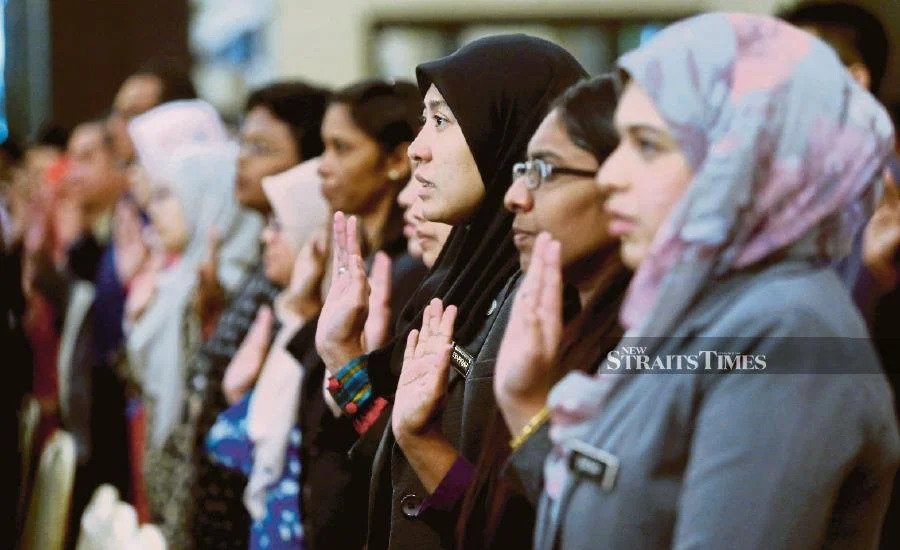Increase corruption convictions by fostering an integrity-based culture
KUALA LUMPUR: Building a culture of integrity, particularly among department heads and civil servants, will help authorities overcome the difficulty of prosecuting corruption cases and raise the conviction rate.
Malaysian Anti-Corruption Commission (MACC) Legal and Prosecution Division deputy director Datuk Wan Shaharuddin Wan Ladin said although the commission had recorded over 90 per cent conviction rate almost every year, the success was not easy to come by.
The commission, he said, was dealing with key challenges: Persuading the suspect's collaborators to be eyewitnesses and the lengthy time of the crime.
Wan Shaharuddin said 99 per cent of corruption crimes involved two parties who mutually benefitted from the corruption (win-win situation), making the other party reluctant to cooperate as an eyewitness.
"Sometimes witnesses are also colleagues, subordinates or business associates of the accused.
"The witness may feel afraid because his testimony may have negative implications for himself and his livelihood.
"Therefore, the witness becomes a party of interest to the accused. Such witnesses have a high potential to defect or refuse to cooperate in the trial," he explained.
Wan Shaharuddin said, secondly, corruption was not a one-time event; rather, it had a set process or system, particularly in big cases.
"For example in the case of corruption related to a project, the act of asking for money happened in 2018 when the project had yet to be offered while the act of receiving money happened in 2020, when the project was running.
"After the case is detected or reported to the authorities, the recipient and those who offer the bribe might change the act to giving a loan, gift, donation and others to confuse the investigators.
"There are even cases where the suspect still receives bribes using his previous position because the bribe giver is still 'indebted' with the projects that have been given," he said, adding that investigators were required to prove elements of corruption from the beginning to the end.
Wan Shaharuddin said the commission's investigation into corruption cases would involve discussion with prosecutors at a very early stage.
"The investigation officer will ask for advice from the Deputy Public Prosecutor to get his view and direction for the investigation to make it easier for prosecution.
"As a result, the findings of the investigation will be of higher quality and meet the 'taste' of the prosecution.
"The prosecution cannot 'live' without a good investigation," he said.
Wan Shaharuddin said the community needed to establish a community of integrity, particularly among department heads and government employees, given the difficulty of pursuing cases of corruption.
"The group needs to set an example as the ones who reject corruption in total.
"This is in line with the 'spirit' of the MACC Act 2009, which emphasises the prevention aspect.
"The inexistence of those without integrity that will take the opportunity to ask for bribes will allow us to deal or at least minimise cases of corruption in the country," he added.


